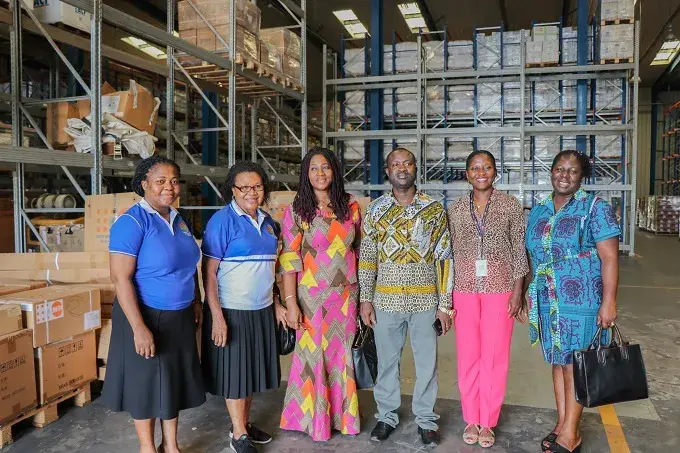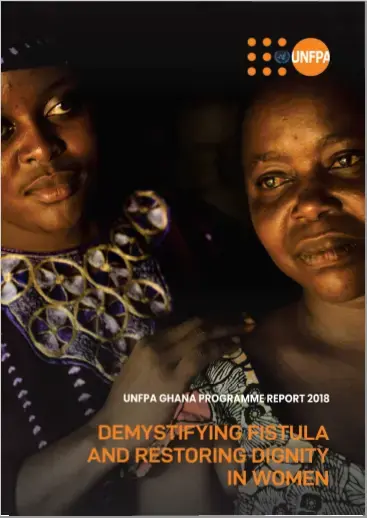Access bank Ghana limited and Kaysens Group have launched an Obstetric Fistula (OF) project dubbed ‘Fist Against Fistula Initiative’, with the aim of raising funds to repair women with fistulae in Ghana. At a press launch on Tuesday 7th August 2018, held at the Alisa Hotel in Accra, the Managing Director of the Bank, Mr Ifeanyi Njoku, announced that the bank’s first tranche of funds, raised to threat one hundred women at the cost of $700 per client, has been donated to the Mercy Women's Catholic Hospital in Mankessim.
Kaysens Managing Director Mrs Helena Stephens said she has single handedly raised funds to treat forty women in 2016 and forty three in 2017. Following this, in 2018, her company lobbied Access Bank to assist with the raising of funds for more fistula repairs. This led to the inception of the Fist Against Fistula Initiative.
The Minister of Gender, Children and Social Protection Hon. Otiko Djaba said she met a fistula client for the first time in 2017, when she visited the Tamale Fistula Centre. Listening to a twenty-seven-year-old lady, who was on admission awaiting surgery, as to how she got the condition, she vowed to make a difference in the lives of vulnerable women. Her encounter contributed to the Ministry’s decision to set up a toll free help line, Helpline of Hope – 0 800 800 800 and 0 800 900 900 - for the general public, particularly women and girls, to report on issues pertaining to the Ministry’s mandate, especially reproductive health (including obstetric fistula and sexual and gender-based-violence).
UNFPA at the global level, is the convener of partners to eliminate Fistula. The Campaign to End Obstetric Fistula was launched in 2003. UNFPA, with the support of Government, launched Ghana’s campaign in 2005. This was revealed by UNFPA- Ghana’s Representative Niyi Ojuolape. Several efforts has since gone into the Obstetric Fistula Campaign, however, in a survey conducted between 2011 and 2014, 1,538 obstetric fistula cases were recorded. Currently over a 1000 cases of obstetric fistula are reported to occur annually in Ghana. UNFPA and its partners are only able to repair about 100 fistula cases per annum for several reasons, including lack of financial support and skilled personnel. This means that there is an incredible backlog of unrepaired cases. This was the impetus for the launching of the 100 in 100 Initiative at this year’s International Day to End Obstetric Fistula; an event in which Access Bank participated. Mr. Ojuolape, who had been in talks with Access Bank prior to the launch, was optimistic of a strategic partnership with the bank in its activities for eliminating obstetric fistula, highlighting the need for financial support not only for the surgical repairs but also for awareness creation, mobilisation of clients and reintegration of repaired women into their communities, after receiving skills training and support.
Dr Joseph Berko, a Medical Practitioner from the Mercy Women's Catholic Hospital, gave a vivid explanation of how OF occurs and the implications for women. He thanked Access Bank and Kaysens Group from the good gesture and encouraged other organisations from the private sector to support the campaign to end Obstetric Fistula in Ghana.




